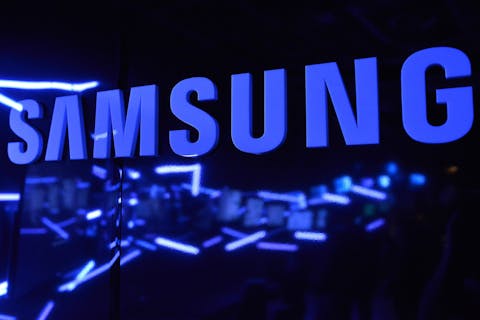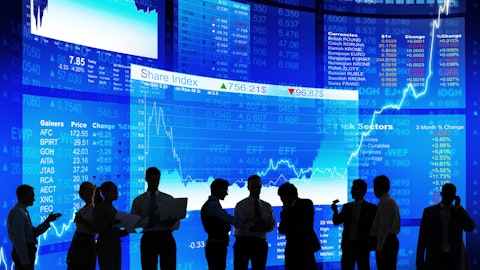In this article we are going to list the 15 biggest wholesale companies in the world. Click to skip ahead and jump to the 5 biggest wholesale companies in the world. Before we go on discussing the wholesale industry as well as its importance in the global supply chain. Sometimes people get confused between manufacturers, distributors, wholesalers and retailers and their responsibilities in the supply chain from the creation of a product to its provision to the end customer. A manufacturer of course, is responsible for the creation of the product.
So for example, a pharmaceutical company such as Sanofi or GSK makes medicine based on years of research and finding out the optimum solution for diseases and hence, is a manufacturing concern. You can learn about these companies if you visit the 15 biggest manufacturing companies in the world. Then, these companies tend to sell to distributors whose job is to get bulk products from the manufacturer and then resell them to wholesalers. A wholesaler then works closely and has relations with both major and minor retailers to whom it sells the products, one again in bulk. Retailers are the one who provide the product to the end consumer i.e. you and me. You can learn more about the retailers which include the biggest company in the world by revenue, if you visit the 15 biggest retailers in the world. It is a long and intricate supply chain, and there are industries who skip a step or two. For example, I work for a multinational manufacturer and here, wholesalers are not involved in the operations as distributors directly provide the product to retailers.

Trong Nguyen/Shutterstock.com
You might be wondering that if all wholesalers do is take product from distributors and provide it to retailers, isn’t that just an extra unnecessary step? Well, it’s extremely important because of the relationship that the wholesalers have with retailers which the distributors don’t have, improving and increasing the product’s reach and allowing the companies to get more market share, and hence increase their sales. Don’t believe me? The wholesale industry globally is worth around $48,478 billion in 2020, which seems massive but is actually a decline from 2019 when the wholesale industry was worth $48,761 billion. I’m sure you’ll know that the reason for this decline is the Covid-19 pandemic which has wreaked havoc across the world, and sent most countries across the world into either a recession or a depression. As travel was banned both domestically and especially internationally, the global supply chain was devastated which has led to a contraction in most industries and economies, and wholesalers of course are involved in most industries and hence, have had to face the effect as well.
Now that vaccines have been approved and mass inoculation is taking place at least across the Western world and soon will be true for developing economies as well, we might soon be seeing the end of the worst pandemic in a century. The wholesale industry is also expected to rebound and surge, and with a CAGR of 6% from 2021, is expected to reach $56,798 in value by 2023.
While wholesale is present everywhere, the biggest market for the wholesale industry is the Asia Pacific region, which is densely populated and actually accounts for more than half of the global market share. Meanwhile, North America was the second biggest market with around 15% of the total market share, while Middle East had the smallest wholesale market in the entire world.
The development of technology can be seen anywhere you look, and most industries which are growing are adopting technology, and the wholesale industry is no different. It is technology which has led to the industry improving its efficiency and has improved streamlining, which has also enabled a much better customer experience which is the most important thing of all for any company or industry.
Like I mentioned earlier, the wholesale sector is a part of several industries be it food, beverages, agriculture, and any other merchandise. Wholesalers either get products on discount or they get rebates as incentives to purchase and sell products from distributors. The biggest companies in the wholesale industries are absolute giants, with the top 15 biggest wholesale companies in the world had revenues of more than $1 trillion combined, with some companies earning more than $100 billion in 2019 alone. Their combined profits cross the $20 billion threshold while their total assets were around $940 billion, while providing direct employment to more than 1.2 million people, and probably indirect employment to millions more. To determine our ranking, we went to the Fortune 500 Global list of 2020, and selected all wholesalers. We then ranked them according to their revenue, assets, profits and employees, which meant some major companies including US Food Holdings (NYSE:USFD), Tech Data (NYSE:TECD) and Arrow Electronics (NYSE:ARW) missed out. So let’s take a look at the giants, starting with number 15:
15. Samsung C&T
Total revenue of the company in 2019 (in millions of dollars): 26,396
Total profit of the company in 2019 (in millions of dollars): 901
Total assets of the company in 2019 (in millions of dollars): 39,700
Total employees of the company in 2019: 16,580
Samsung is one of the most well known corporation in the world for its electronics business but its also involved in wholesale, and is mostly involved in construction projects, fashion and trade and investment.






